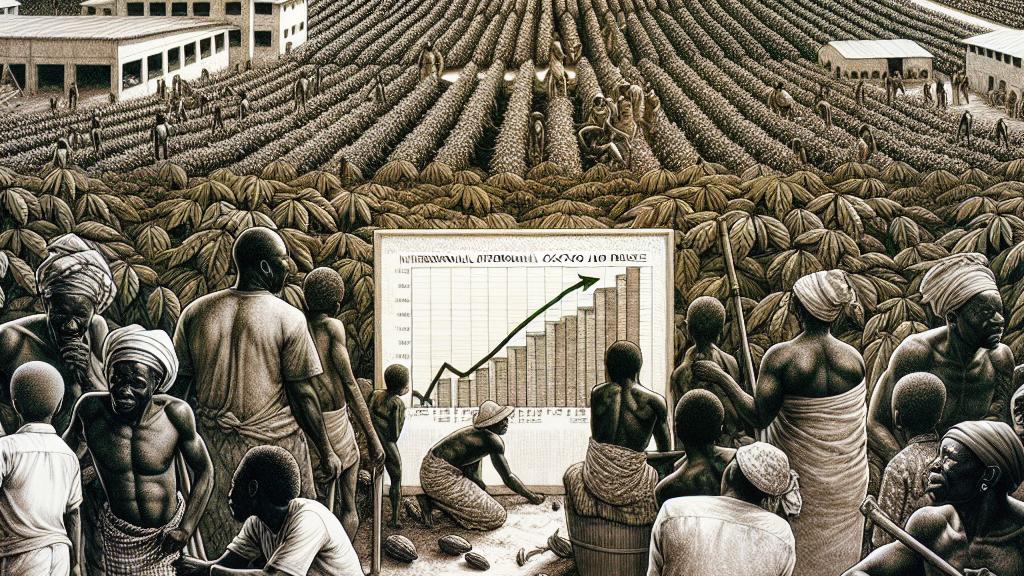Challenges Faced by Ghanaian Farmers Amidst Rising Cocoa Prices
Overview
- Ghanaian cocoa prices have skyrocketed over 300%, a response to severe harvest declines.
- Local farmgate prices remain significantly lower than international rates, impacting farmer incomes.
- Despite Cocobod's price increases, systemic challenges continually undermine farmer prosperity.

The Cocoa Conundrum in Ghana
In the heart of Ghana, where cocoa farming is more than just a profession—it's a way of life—farmers face a heart-wrenching paradox. On one hand, they celebrate the astounding rise in international cocoa prices, which surged over 300%, hitting an astonishing £9,980 per ton in April 2024. This impressive spike is attributed to a combination of unfortunate harvests due to the El Niño climate phenomenon and years of neglect in agricultural investments. Yet, here lies the dilemma: even with these rising prices, local farmers are still struggling to break even, as the farmgate prices they receive stubbornly trail behind. For them, the reality is painful; they pour heart and soul into cultivating cocoa, yet only see scant returns from their hard work.
Cocobod's Intervention: A Solution or a Hindrance?
In an effort to alleviate farmer struggles amidst soaring international rates, Cocobod intervened by raising farmgate prices dramatically—by a notable 58% in April 2024. This hike escalated the price from 33,120 to 48,000 Ghanaian cedis per ton by September, reflecting a commendable initiative indeed. However, while these numbers look impressive on paper, they still lag behind global benchmarks, creating a frustrating situation for Ghanaian cocoa farmers who see their counterparts in neighboring Ivory Coast benefiting more. Imagine the disappointment of a farmer excited about a potentially profitable harvest, only to be met with disappointing payouts that fail to reflect the booming market. Furthermore, Cocobod's reliance on forward contracts, locking in prices months prior, means that when market prices soar unexpectedly, the farmers miss out on profits they rightfully deserve.
Systemic Barriers: The Struggle for Sustainable Progress
The challenges faced by cocoa farmers in Ghana extend far beyond mere pricing issues; they are entrenched in systemic barriers requiring urgent attention. Approximately 800,000 households—representing a substantial portion of the population—depend on the cocoa market for their livelihoods. While Cocobod’s Cocoa Management System aims to modernize support for farmers through improved access to information and services, its effectiveness hinges on significant investment in infrastructure and sustainable agricultural practices. Visualize a future where farmers are equipped not only with the latest techniques in pest management but also access to high-quality inputs that yield premium beans. By fostering innovation and providing education, Ghana can not only meet the rising global chocolate demand but can uplift the hardworking farmers who embody the spirit of this beloved crop. In this transformative journey together, we can create a cocoa industry that flourishes, benefiting everyone involved.

Loading...